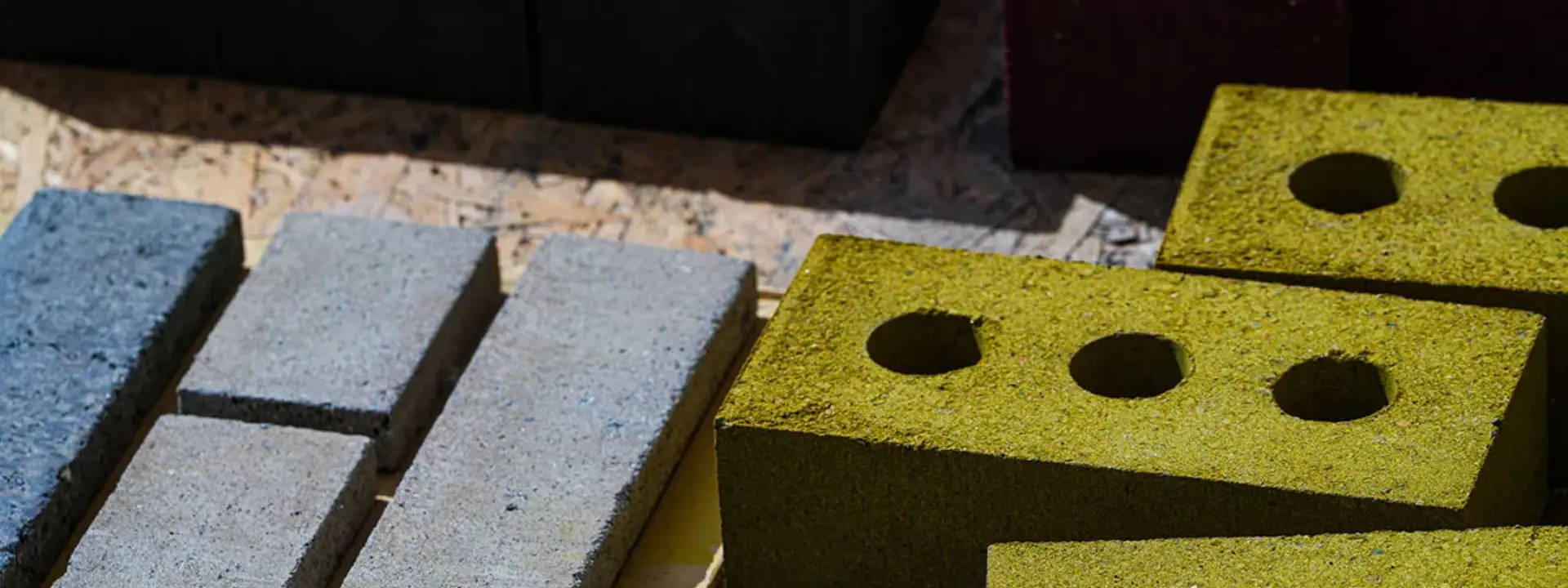Transforming the construction industry with eco-friendly building materials

Across the world, it is widely recognised that the construction industry must take action to reduce its greenhouse gas emissions and increase its use of sustainable construction materials.
In the UK, the industry generates 45 of the country’s total carbon emissions and 32 of landfill waste. Reaching Scotland’s net-zero target in 2045, and the wider UK’s 2050 goal, requires significant emission reductions from the construction industry.
Bricks are crucial to this industry; in the UK alone 2.6 million bricks are used per year, but their production is an energy intensive process that has a clear impact on the environment. Addressing this issue, Heriot-Watt spin-out company, Kenoteq, has created the world’s first building brick made from over 90% recycled construction and demolition (C&D) waste.
Pioneering eco-innovation: the K-BRIQ®
Kenoteq’s K-BRIQ® consumes significantly less energy in its production. Unlike traditional bricks, it doesn’t need to be fired in a kiln, so no expensive and energy intense fossil-fuel firing is required; instead, its patented low energy production process uses hydraulic compression with a no waste process.
The K-BRIQ® also only produces around a fifth of the carbon dioxide emissions of a traditional fired clay brick. Its final embodied carbon (the carbon footprint) is under 20g CO₂e per unit, which is 95% less than a traditional clay brick.
Made from construction and demolition waste, the K-BRIQ® boasts the highest percentage of recycled content of any brick in the UK market. While it doesn’t contain any cementitious compounds, it still has the strength of a traditional brick and offers better thermal behaviour.
As a ground-breaking, sustainable building material, and an exemplar circular economy product, the K-BRIQ® has the potential to revolutionise the construction sector. This impact was recognised in 2022, when the product won Sustainable Design of the Year in the Dezeen Awards.
Helping the built environment achieve a low carbon future
K-BRIQ® addresses waste reduction and low-carbon construction needs, as well as contributing towards the current shortage in material supplies. The UK is one of the largest markets for bricks in Europe, importing around 500 million* bricks due to shortages in its domestic supply. (*2019 figure)
Kenoteq opened its first production plant next to a waste and recycling facility, which reduces transport miles and supports K-BRIQ’s circular economy credentials. Currently,
production is being scaled up, and by the end of the year the factory will be producing two million bricks per annum.
The K-BRIQ® has been instrumental in raising the profile of geomaterials engineering and driving ‘sustainability in construction’ back into the policy agenda. For government and local authorities, it offers a route to better meet waste and recycling targets and carbon emissions reduction targets: it can reduce drastically the embodied carbon of any project.
The K-BRIQ® has been featured in a number of high-profile demonstration projects including the global investment company, Dubai Holdings, presence in the Green Zone at COP28. It has also been incorporated into a range of statement interior projects including for leading retailer Gail’s Bakery and Edinburgh bar Nauticus. As it enters its final certification stage with the British Board of Agrément (BBA), expected to be complete in Autumn 2024, the K-BRIQ can then be used in larger exterior projects.
As it heads into commercial manufacture and into pioneering build projects keen to partner with Kenoteq, K-BRIQ® will help to drive down carbon emissions in the built environment and support green jobs and local supply chains. The intention is to scale the model, setting up production facilities in partnership with waste management companies across the UK and internationally. The location of its production can be sited anywhere as it is not limited to areas with clay pits, thereby reducing the dependency on long haul transport, related costs and lead times for building projects.
Contact
Policy, Strategy and Impact (PSI)
- PSI@hw.ac.uk